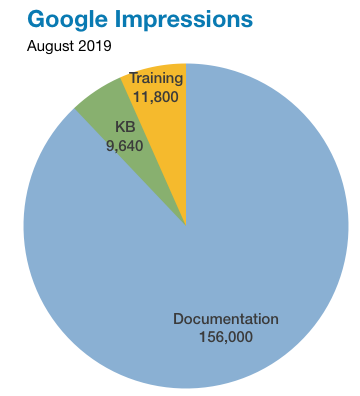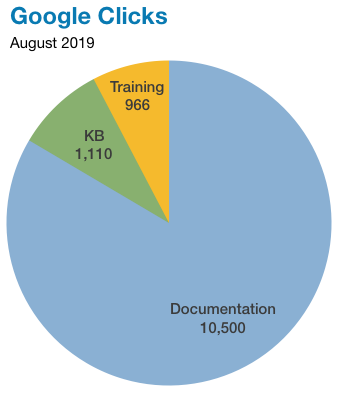Codership Writers & Editors¶
The Codership Library is written by the staff of Codership. Its editors then edit and organize that text—some also write plenty of the text. This section of the Library relates to these activities. Here you will find information on how the Library is organized and our plans for its development and maintenance—assuming this is some of interest to anyone other than the editors.
The mission of the editorial staff, as well as their goals related to the Codership Library are described on this page—click on the title here to get to it. It includes a description and purpose of each section of the Library (for example, the types of articles contained in the Knowledge Base).
Editorial Plans & Calendar


The Codership Library was reorganized recently to make it easier to find information on Galera Cluster. This includes the introduction of a knowledge base containing troubleshooting and best practices articles, as well as tutorial articles and training videos.
This has been quite an extensive project. As such, we’ve added here plans of how we’ll further organize and expand these primary sections of the Library, as well as an editorial calendar of the publication of articles and other resources.
On the right are two pie charts representing data from Google, depicting the percentage of user impressions and clicks for the Library. Below are brief summaries of each section of the Library and links to more detailed information.
Content: 69 Documents, 242 Pages, 70,023 Words; Google Traffic, August: 156,000 Impressions, 10,500 Clicks
Previously, the Documentation encompassed all of what is now known as the Library. Now it is straightforward documentation, not tutorials or advice articles. It does include over two hundreds pages of information on configuring and administering Galera Cluster.
Content: 21 Articles, 15 pages, 6,547 Words; Google Traffic, August: 9,640 Impressions, 1,110 Clicks
The Knowledge Base provides troubleshooting articles about resolving common problems, and best practices articles for improving performance, ensuring against crashes, and other methods for getting the most out of Galera.
Editorial Calendar for Tutorials
Content: 22 Articles, 132 Pages, 59,430 Words; Google Traffic, August: 9,750 Impressions, 957 Clicks
One of our goals is to write a robust set of tutorial articles to assist readers in learning about every aspect of Galera Cluster and related software. On this page, you will find a list of articles with links to them, as well as a list of articles we intend to add to the Library—along with when we expect to publish these articles.
Videos: 10; Google Traffic, August: 2,090 Impressions, 8 Click
Related to our tutorial articles, we have begun developing training videos, screencasts on how to use and configure Galera Cluster and related software. This page includes information on videos we’ve already created, as well as many additional videos we intend to create—and some videos we intend to eliminate.
Content: 35 Questions, 4,189 Words; Google Traffic, July: 991 Impressions, 97 Clicks
On this page we record new questions for the FAQ until we are able to answer them properly. Some contain rough answers; they’re FAQs in progress.
Library Mechanics
Below are areas related to the mechanics of the Library: documentation processing system, mark-down language, as well as a style guide.
For a more profesional result, the editors of the Codership Library have developed a consistent style of writing text published in the Library. This is a style guide to help writers to create text for the Library.
Codership utilizes the Sphinx documentation system to organize and process the documentation and other pages of the Library, including various articles. These documents or files are written in the Restructured Text format, a type of mark-down language. This is a guide to that system and mark-down language.
All of the Codership Library files—the restructed text files, as well as the formatting and configuration files—are available publicly on GitHub. This page provides information about our GitHub repository.
